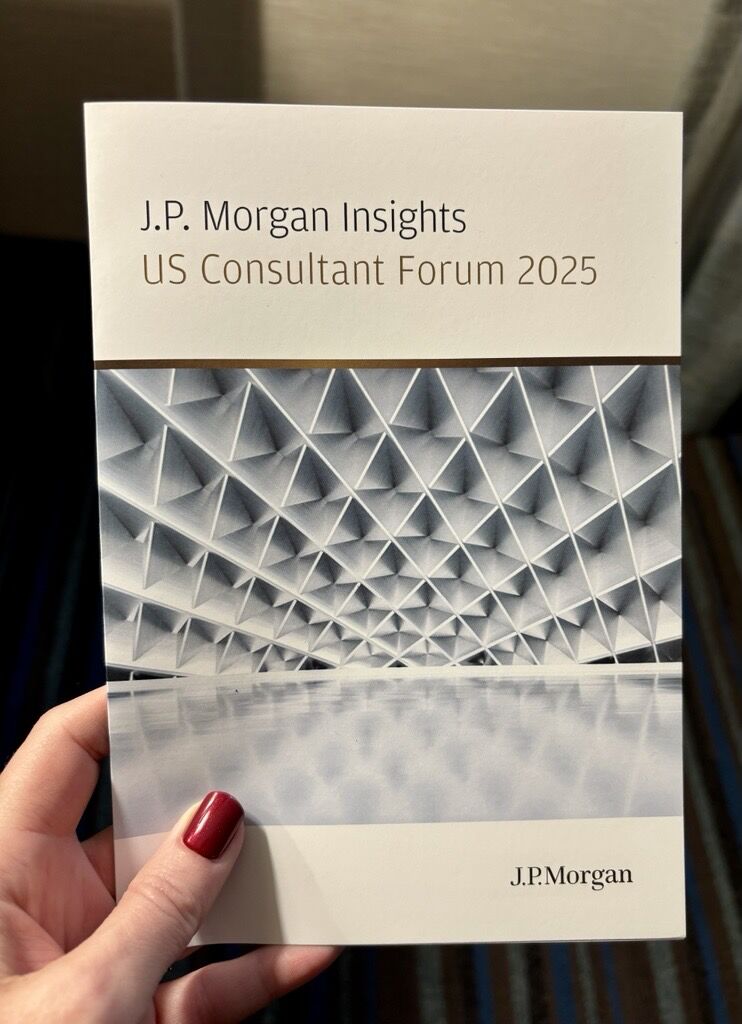Read More


Reflecting on my experience at last week’s JP Morgan Chase Consultant Forum, I am struck by how the asset management industry is being reshaped by forces that demand both agility and vision from investment managers. The conversion of mutual funds to ETFs continues to gain momentum, but is not a simple transition. It requires careful strategy to manage liquidity risks and ensure long-term viability. Private markets and alternatives are now central to client revenue, and the outsourcing of middle office and custody functions—supported by robust data management and AI—has become a strategic imperative.

Geo-political disruption emerged as a dominant theme, underscoring the need for resilience as a core strategy. The summit highlighted how sanctions and global events can upend post-trade operations overnight, exposing vulnerabilities in supply chains and vendor relationships. Investment managers must rigorously assess their dependencies and develop contingency plans for major scenarios. There are certain tools, such as SWIFT that are so integral to the global infrastructure that an outage could be paralyzing. Developing a Resiliency Playbook stood out as a practical recommendation from JP Morgan. Those who proactively build resilient operations will be best positioned to safeguard client assets and maintain continuity.
..."I left convinced that those who proactively build resilient operations will be best positioned to safeguard client assets and maintain continuity."
Tokenization was described as the next wave of innovation, with adoption rates soaring and regulatory barriers beginning to fall. The opportunity to redesign post-trade infrastructure for digital assets is an advantage for early adopters.

Alternatives and credit are also being democratized, with credit ETFs and CLOs expanding access to retail investors. Alternatives are expanding at 9% annually, The challenge is to implement disciplined risk controls while capturing growth across these diversified asset classes.
The private markets present a unique data challenge. The summit emphasized that unlocking alpha now depends on the ability to industrialize data—using machine learning to normalize unstructured information and create unified portfolio views. JP Morgan’s approach to aggregating and integrating reporting tools offers a blueprint for others seeking clarity and agility in a fragmented landscape.
The ETF market is more dynamic than ever, with complexity rising alongside opportunity; 1,000 new ETFs launched in 2025. Fixed Income ETFs are opening retail access, but they are highly complex--particularly Bank Loan ETFs. Success in this space requires investment managers to design products for liquidity and tax efficiency. The importance of partnering with strong issuers to support that effort, allowing the managers to focus on marketing and distribution was stressed.
"The most forward-thinking organizations are appointing dedicated data and AI leaders in every business unit."
Artificial intelligence was a focal point of discussion, and I found the consensus both reassuring and energizing. AI is enabling operational efficiency and better client outcomes, not replacing human expertise. The most forward-thinking organizations are appointing dedicated data and AI leaders in every business unit, rewiring workflows to eliminate manual handoffs and accelerate results. For investment managers, the message is clear: those who integrate AI thoughtfully and enhance their teams’ capabilities will set the pace for the industry.
In summary, the summit reinforced that investment managers must anticipate change, adapt strategies, and accelerate innovation to remain competitive. By embracing data challenges, resilient supply chains, tokenization, and AI, we can transform uncertainty into opportunity and lead our clients confidently into the future. The challenge is real, but so is the potential for growth and leadership in this new era.
Joanna Herrick
Chief Growth Officer


